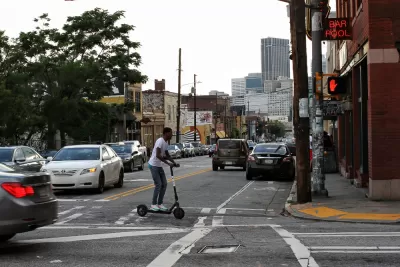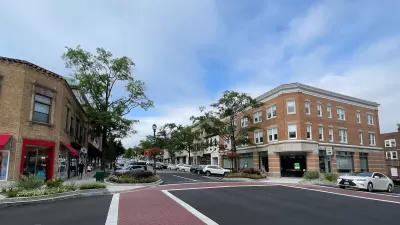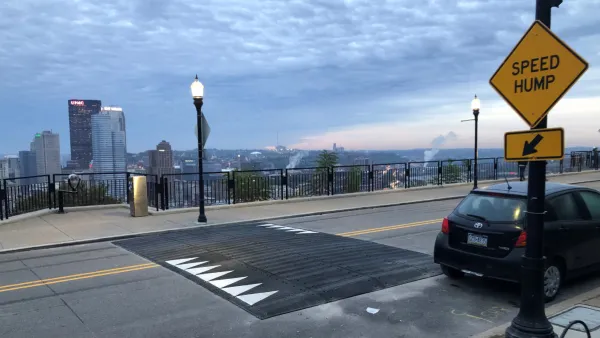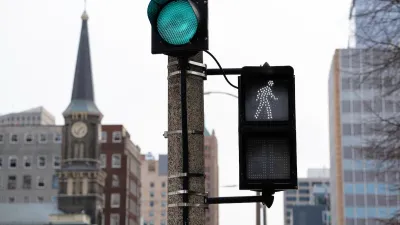The city's department of transportation has released a guide to help community groups implement low-cost 'tactical urbanism' projects.

Atlanta is encouraging community groups to use 'tactical urbanism' interventions to improve pedestrian and cyclist safety at the hyper-local level. As Jason Plautz describes in Smart Cities Dive, "Betty Smoot-Madison, mobility planning director for the Atlanta Department of Transportation, said the tactical urbanism projects are a 'lower-cost and shorter-term' way to meet the city’s overarching goal of 'reimagining and re-engineering our roads around people.'"
'Tactical urbanism' refers to low-cost, temporary, infrastructure interventions by community organizations or other local actors that address street safety, walkability, and mobility issues. The updated guide adds six project options to the city's 2020 tactical urbanism guide: "tactical slip lane closures, demonstration bike lanes, tactical bus stop enhancements, pedestrian space art and lane narrowing." The temporary projects could lead to permanent changes if successful, according to Smoot-Madison.
"The projects also help engage community members around their own priorities; while the city may have to focus on high-traffic corridors and major streets, neighborhood groups have a better sense of the dangers at local intersections that may receive less attention."
Other cities have implemented similar initiatives. "Denver, for example, has launched the vision zero community program to encourage traffic calming and public art. Columbus, Ohio, has used temporary bollards and painting to test design changes at dangerous intersections."
FULL STORY: Atlanta embraces tactical urbanism in Vision Zero initiative

Planetizen Federal Action Tracker
A weekly monitor of how Trump’s orders and actions are impacting planners and planning in America.

Congressman Proposes Bill to Rename DC Metro “Trump Train”
The Make Autorail Great Again Act would withhold federal funding to the system until the Washington Metropolitan Area Transit Authority (WMATA), rebrands as the Washington Metropolitan Authority for Greater Access (WMAGA).

DARTSpace Platform Streamlines Dallas TOD Application Process
The Dallas transit agency hopes a shorter permitting timeline will boost transit-oriented development around rail stations.

The Tiny, Adorable $7,000 Car Turning Japan Onto EVs
The single seat Mibot charges from a regular plug in about as much time as an iPad, and is about half the price of an average EV.

Supreme Court Ruling in Pipeline Case Guts Federal Environmental Law
The decision limits the scope of a federal law that mandates extensive environmental impact reviews of energy, infrastructure, and transportation projects.

Texas State Bills to Defund Dallas Transit Die
DART would have seen a 30% service cut, $230M annual losses had the bills survived.
Urban Design for Planners 1: Software Tools
This six-course series explores essential urban design concepts using open source software and equips planners with the tools they need to participate fully in the urban design process.
Planning for Universal Design
Learn the tools for implementing Universal Design in planning regulations.
Roanoke Valley-Alleghany Regional Commission
City of Mt Shasta
City of Camden Redevelopment Agency
City of Astoria
Transportation Research & Education Center (TREC) at Portland State University
US High Speed Rail Association
City of Camden Redevelopment Agency
Municipality of Princeton (NJ)





























